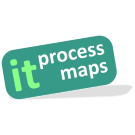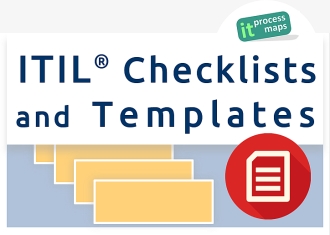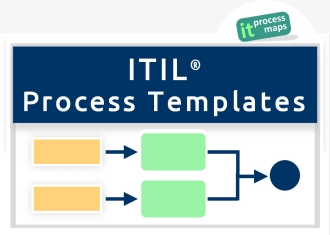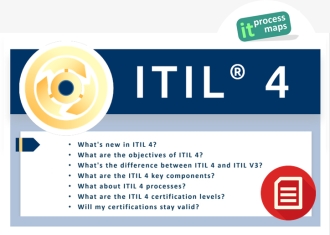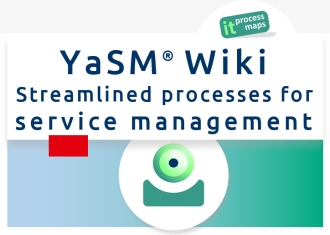Knowledge Management: Difference between revisions
No edit summary |
No edit summary |
||
| (One intermediate revision by the same user not shown) | |||
| Line 13: | Line 13: | ||
<meta property="og:image:width" content="1200" /> | <meta property="og:image:width" content="1200" /> | ||
<meta property="og:image:height" content="900" /> | <meta property="og:image:height" content="900" /> | ||
<link href="https://plus.google.com/108613479011811316823/posts" rel="publisher" /> | <link href="https://plus.google.com/108613479011811316823/posts" rel="publisher" /> | ||
</itpmch> | </itpmch> | ||
<imagemap> | <imagemap> | ||
Image:ITIL-Wiki-de-es.jpg|right|DE - ES - Knowledge Management|163px | |||
Image:ITIL-Wiki-de-es.jpg|DE - ES - Knowledge Management|163px | |||
rect 81 0 114 36 [https://wiki.de.it-processmaps.com/index.php/Knowledge_Management diese Seite auf Deutsch] | rect 81 0 114 36 [https://wiki.de.it-processmaps.com/index.php/Knowledge_Management diese Seite auf Deutsch] | ||
rect 115 0 163 36 [https://wiki.es.it-processmaps.com/index.php/ITIL_Gestion_del_Conocimiento esta página en español] | rect 115 0 163 36 [https://wiki.es.it-processmaps.com/index.php/ITIL_Gestion_del_Conocimiento esta página en español] | ||
| Line 151: | Line 138: | ||
<!-- This page is assigned to the following categories: --> | <!-- This page is assigned to the following categories: --> | ||
[[Category:ITIL 2011]][[Category:ITIL V3]][[Category:ITIL process]][[Category:Service Transition|Knowledge Management]][[Category:Knowledge Management|!]] | [[Category:ITIL 4]][[Category:ITIL 2011]][[Category:ITIL V3]][[Category:ITIL practice]][[Category:ITIL process]][[Category:Service Transition|Knowledge Management]][[Category:Knowledge Management|!]] | ||
<!-- --- --> | <!-- --- --> | ||
Latest revision as of 11:55, 31 December 2023

Objective: ITIL Knowledge Management aims to gather, analyze, store and share knowledge and information within an organization. The primary purpose of this ITIL process is to improve efficiency by reducing the need to rediscover knowledge.
Part of: Service Transition
Process Owner: Knowledge Manager
Process Description

ITIL defines Knowledge Management as the one central process responsible for providing knowledge to all other IT Service Management processes. The process overview of ITIL Knowledge Management (.JPG) shows the key information flows (see fig. 1).
Many aspects of Knowledge Management - added as a new process in ITIL V3 - were covered by several other processes in the previous ITIL version. For example, Problem Management was (and still is) responsible for managing the Known Error Database.
Knowledge Management is dealt with in many other Service Management processes. The process itself ensures that all information used in IT Service Management, stored in the Service Knowledge Management System, is consistent and readily available.
ITIL 4 refers to 'Knowledge Management' as a general management practice.
Sub-Processes
No sub-processes are specified for ITIL Knowledge Management.
Definitions
The following ITIL terms and acronyms (information objects) are used in Knowledge Management to represent process outputs and inputs:
Service Knowledge Management System (SKMS)
- The Service Knowledge Management System (SKMS) is the central repository of the data, information and knowledge that the IT organization needs to manage the lifecycle of its services. Its purpose is to store, analyze and present the service provider's data, information and knowledge. The SKMS is not necessarily a single system – in most cases it will be a federated system based on a variety of data sources.
Roles | Responsibilities
Knowledge Manager - Process Owner
- The Knowledge Manager ensures that the IT organization is able to gather, analyze, store and share knowledge and information. His primary goal is to improve efficiency by reducing the need to rediscover knowledge.
| ITIL Role / Sub-Process | Knowledge Manager |
|---|---|
| Knowledge Management (no sub-processes specified) |
A[1]R[2] |
Remarks
[1] A: Accountable according to the RACI Model: Those who are ultimately accountable for the correct and thorough completion of the ITIL Knowledge Management process.
[2] R: Responsible according to the RACI Model: Those who do the work to achieve a task within Knowledge Management.
Notes
By: Stefan Kempter ![]() , IT Process Maps.
, IT Process Maps.
Process Description › Definitions › Roles
